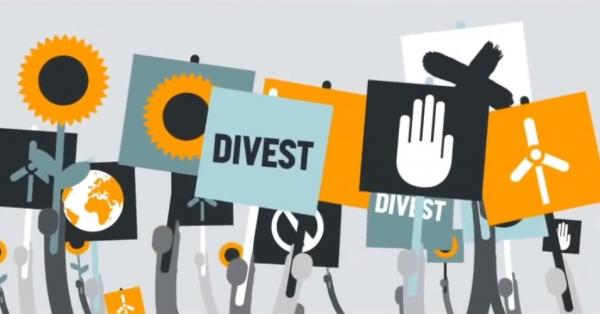 Helping the environment through responsible investments
Helping the environment through responsible investments
“I’m doing my bit! I invest responsibly! I am so careful what I buy! And so do a lot of people I know. Haven’t we come a long way in the last twenty years?” Such is the well intentioned cry of so many of us. And yes, if you listen to the first plaintive cries of alarm on climate change from 2000 (think Al Gore or Melvyn Bragg) indeed we have come a long way. But can you be sure that what you buy and invest is doing the maximum good?
Horsham Climate Café got some answers on Saturday April 3rd from speakers Richard Shuker and Nicola Peel. Can you run an economy yet still avoid trashing everything around you? How do we put a value on the things we invest? Can the environmental movement somehow seize hold of the whole buying/investing nexus, and somehow turn it to the good? Richard and Nicola thought so.
Richard began with the whole complicated question of responsible investment. He is not a financial adviser, as he is quick to stress. But a lifetime in financial services has equipped him with sharp eye for the right questions. What are the opportunities for responsible investing? What are the pitfalls? For the benefit of the hopelessly naïve, there was a sardonic take on greenwashing-the practice by which certain cynical companies make themselves seem a lot more environmentally friendly than they really are. Who’d have thought it? He also took on the current fad for cryptocurrencies-surely they don’t polish off any rainforests? Perhaps. Actually the energy used for bitcoin “mining” is more than that used to power whole countries-and most of it comes from dirty sources like coal and oil. Buyer beware indeed.
We pay for water, for energy, even for food-so why not for the air we breathe? It’s a moot point, somewhat overlooked by classical economists of the Adam Smith variety. Because if we carry on felling the way we do, the air just won’t be there in 2100. “Why do people insist on cutting down trees?” asked Nicola Peel. The answer is it’s the only way they can get money to feed their families. The solution is to step in and pay them to keep those forests standing. If we can find a way to make the local people the guardians of their mature forests, then we could still be in with a chance. Of course we should all be planting more trees, as Nicola was quick to acknowledge. But young saplings are an investment, and as any broker will tell you, you have wait long time for the pay off, when they start soaking up all that CO2. The existing rainforests will determine whether we stand or fall. Amazingly, they could also be a source of the new antibiotics and other medicines we so desperately need. Nicola is building on her twenty years’ experience with local communities in places like Ecuador to make these pay to breathe schemes real.
Great fortunes are wisely invested, the benefits passed down the generations. Our generation can leave no better future legacy than healthy thriving forests, purifying the air and adding something more to our lives than just profit and loss.
Nicola and Richard would like to share their talks with you. If you want to find out more, just click on the links below.
Written by Keir Hartley
Natures solutions to climate change
African forest elephants fight climate change
RESPONSIBLE INVESTING MATERIALS from Richard Shuker
(These are not recommendations – they are for consideration and personal investigation)
Websites
Advice
Platforms
Individual investments
- Triodos bank
- Ceres Power Holdings
- Powerhouse Energy
- Legal & General
- Aviva
- NS&I Green Bond (to be launched)
- Tumelo investment
- Abundance Investment
- Ethex
Investment Trusts
- Next energy renewables
- Renewables infrastructure group
- Bluefield solar income fund
- Greencoat UK Wind
Passive funds
- L&G Future World ESG Developed Index
Active funds
- Kames ethical equity
- Trojan Ethical Income
- Aegon Ethical Equity
- Liontrust Sustainable Future Global Growth
- M&G Positive Impact Fund
- FP WHEB Sustainability Fund
Feeling inspired to get involved?
We are always looking for volunteers, so get in touch or come and meet us and see how you can get involved! Join us on Facebook, Twitter and Instagram, or sign up to receive our latest news (it only takes two seconds to add your email address – simply add your email address in the pop up subscribe window. Feel free to also send us an email using our contact form, or come and say hello at our events like the Horsham Repair Cafe!

